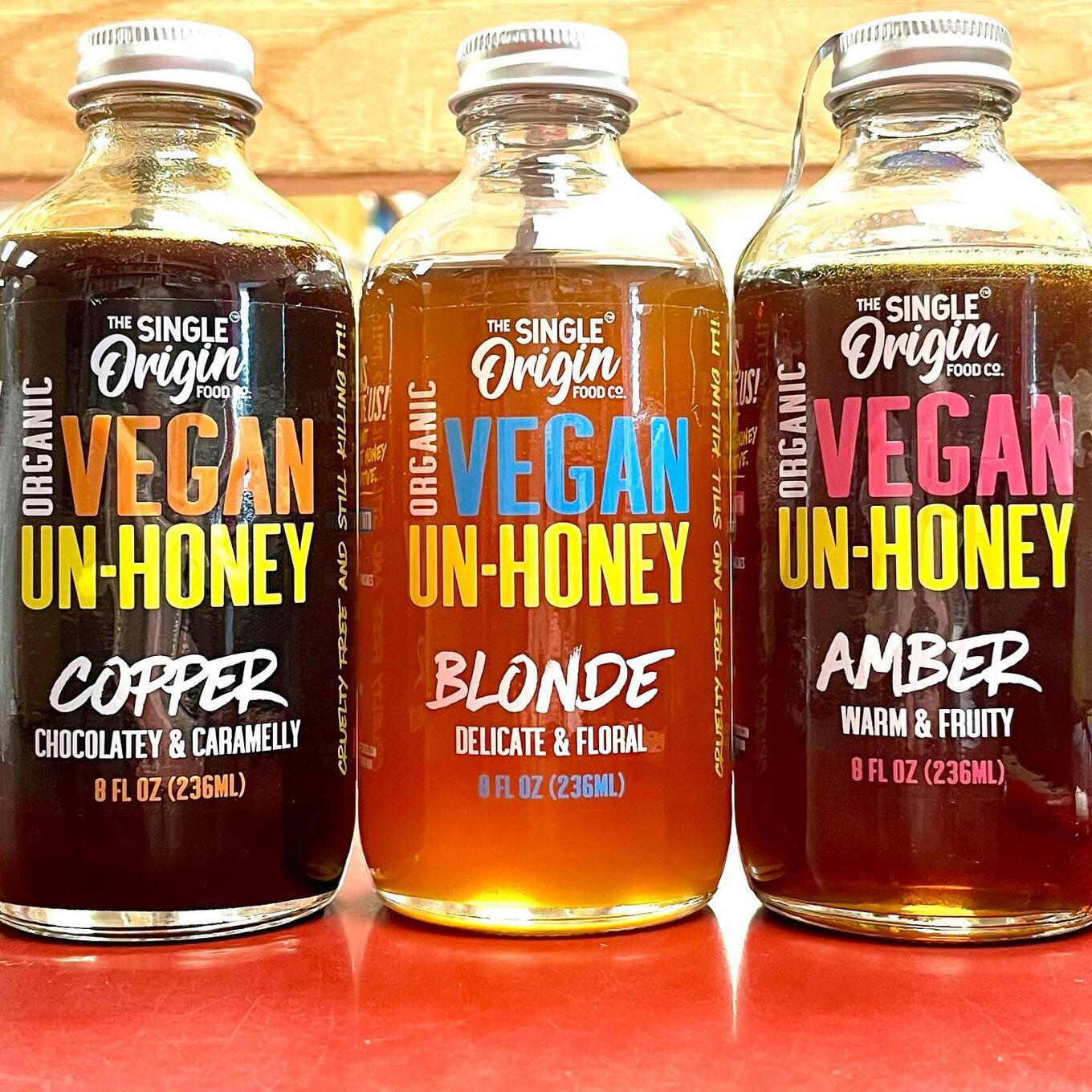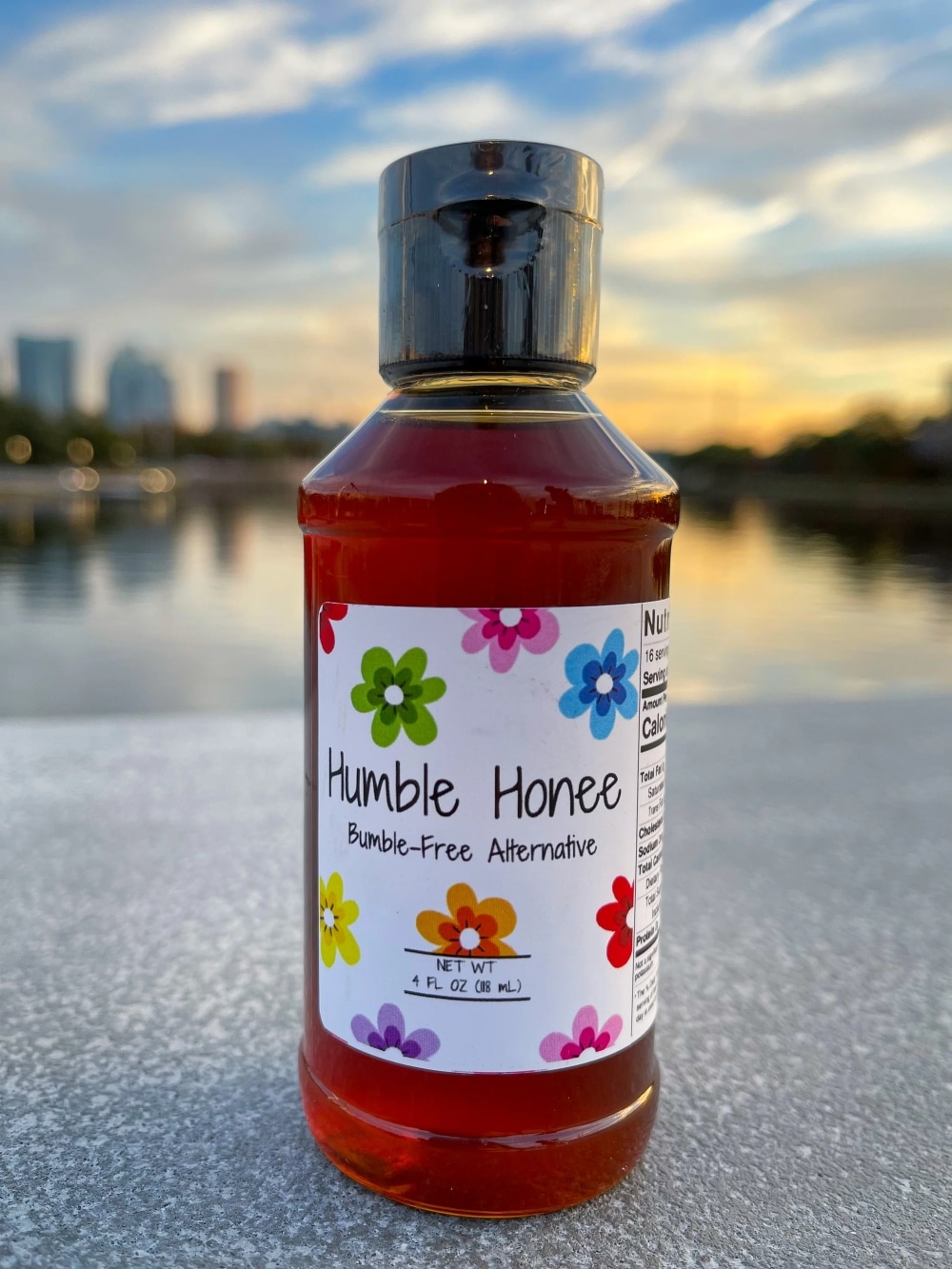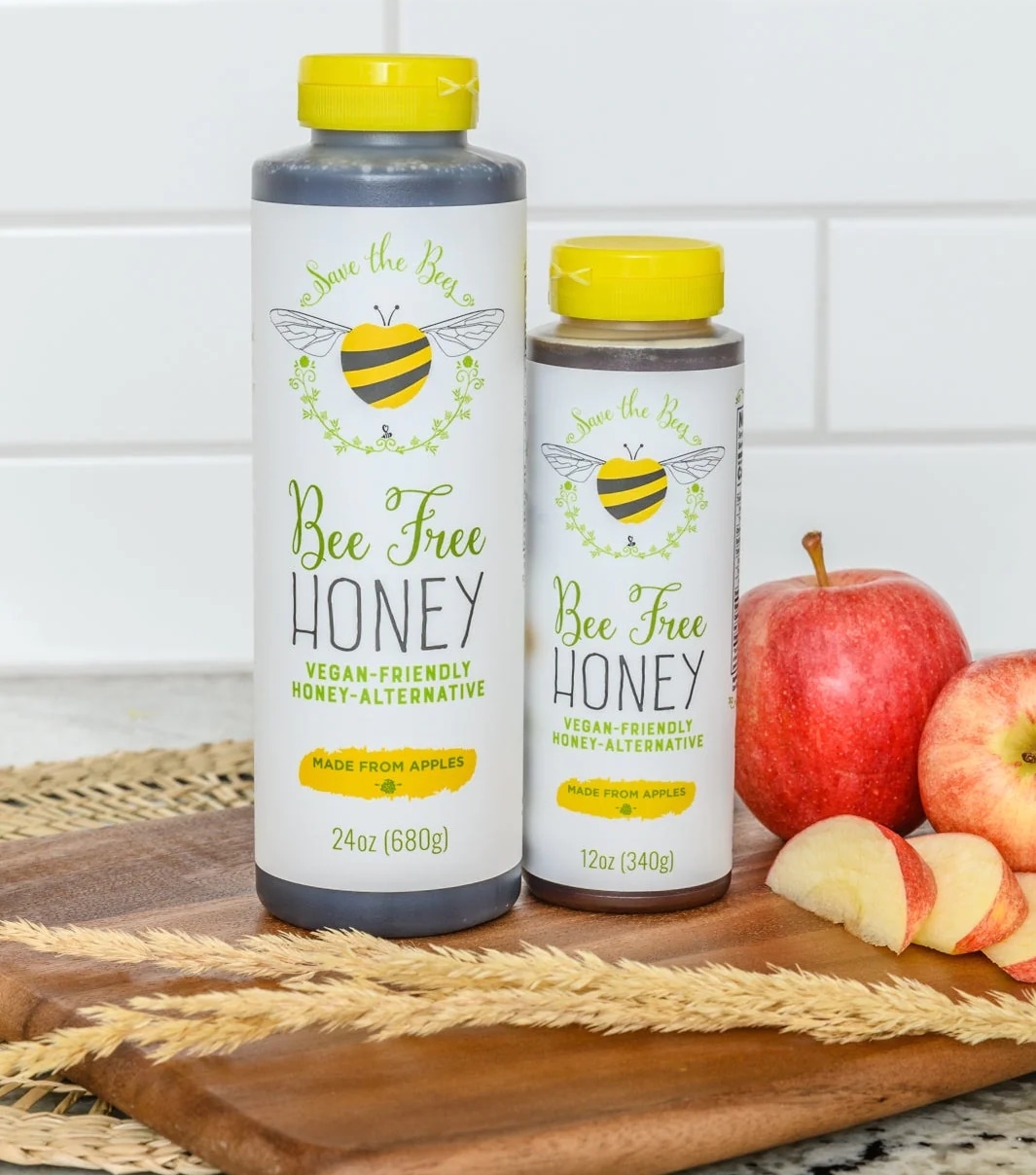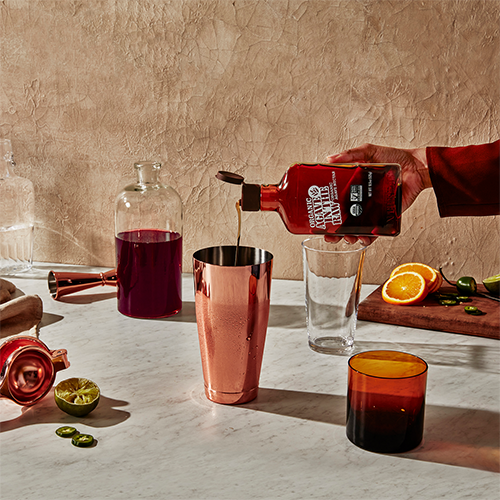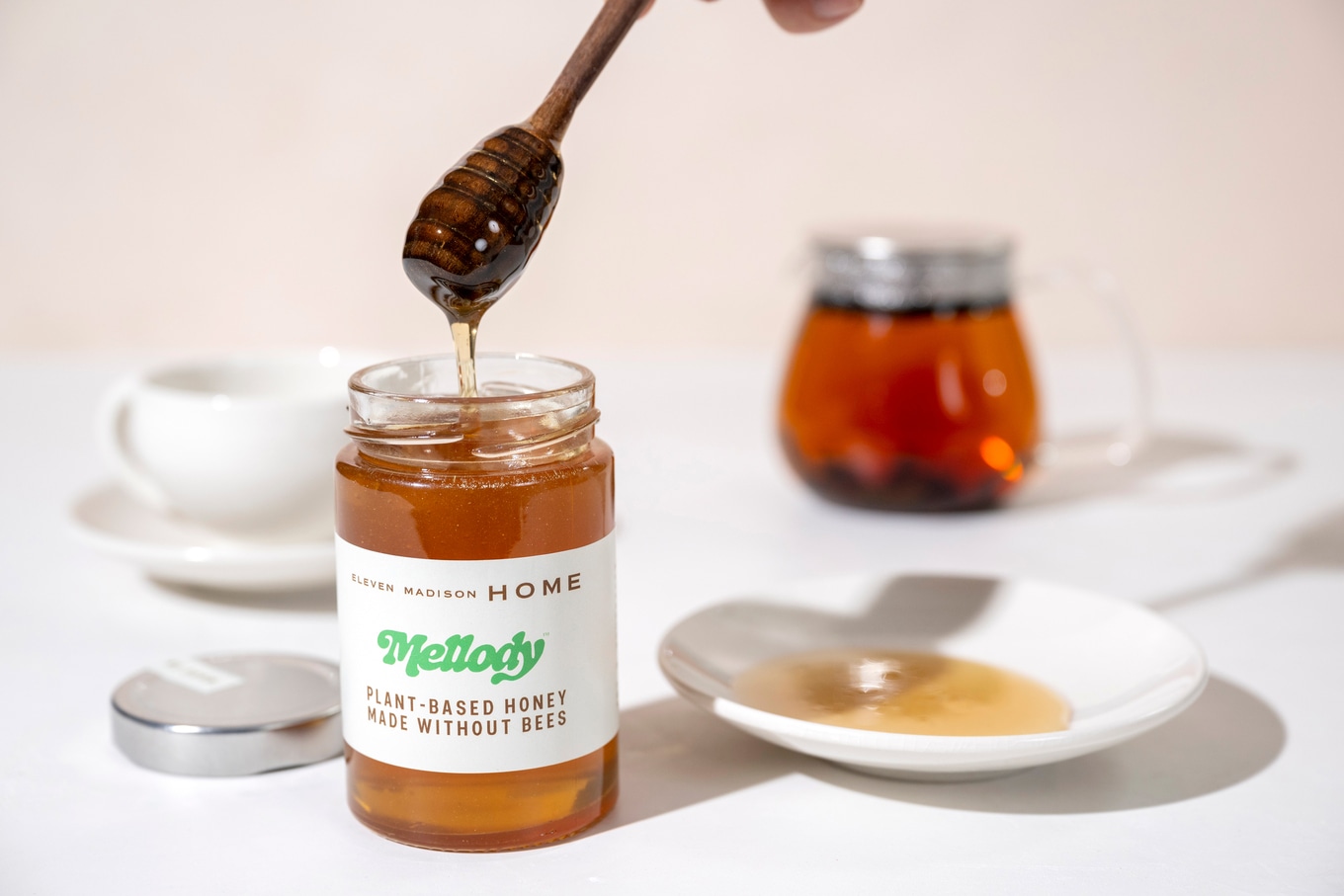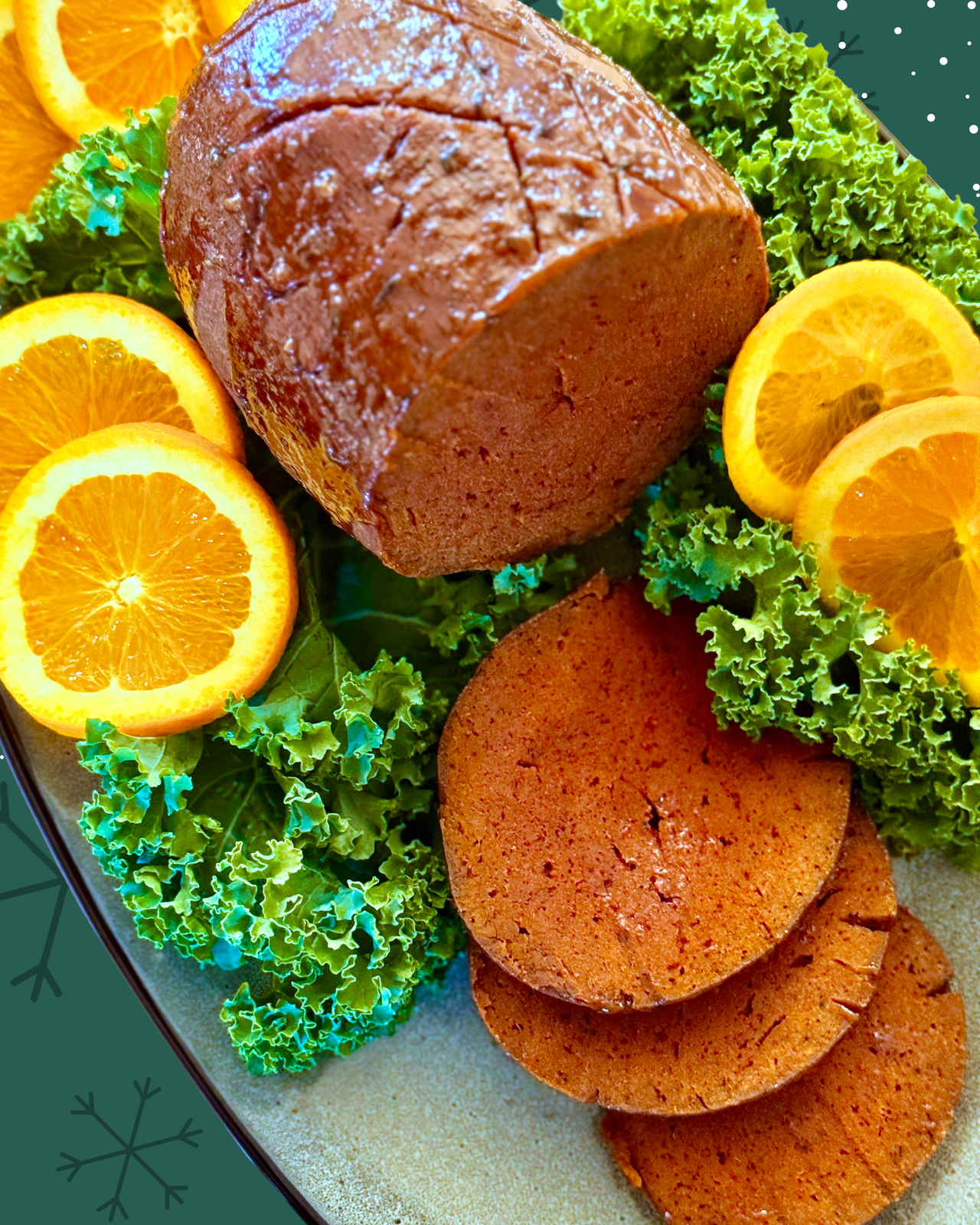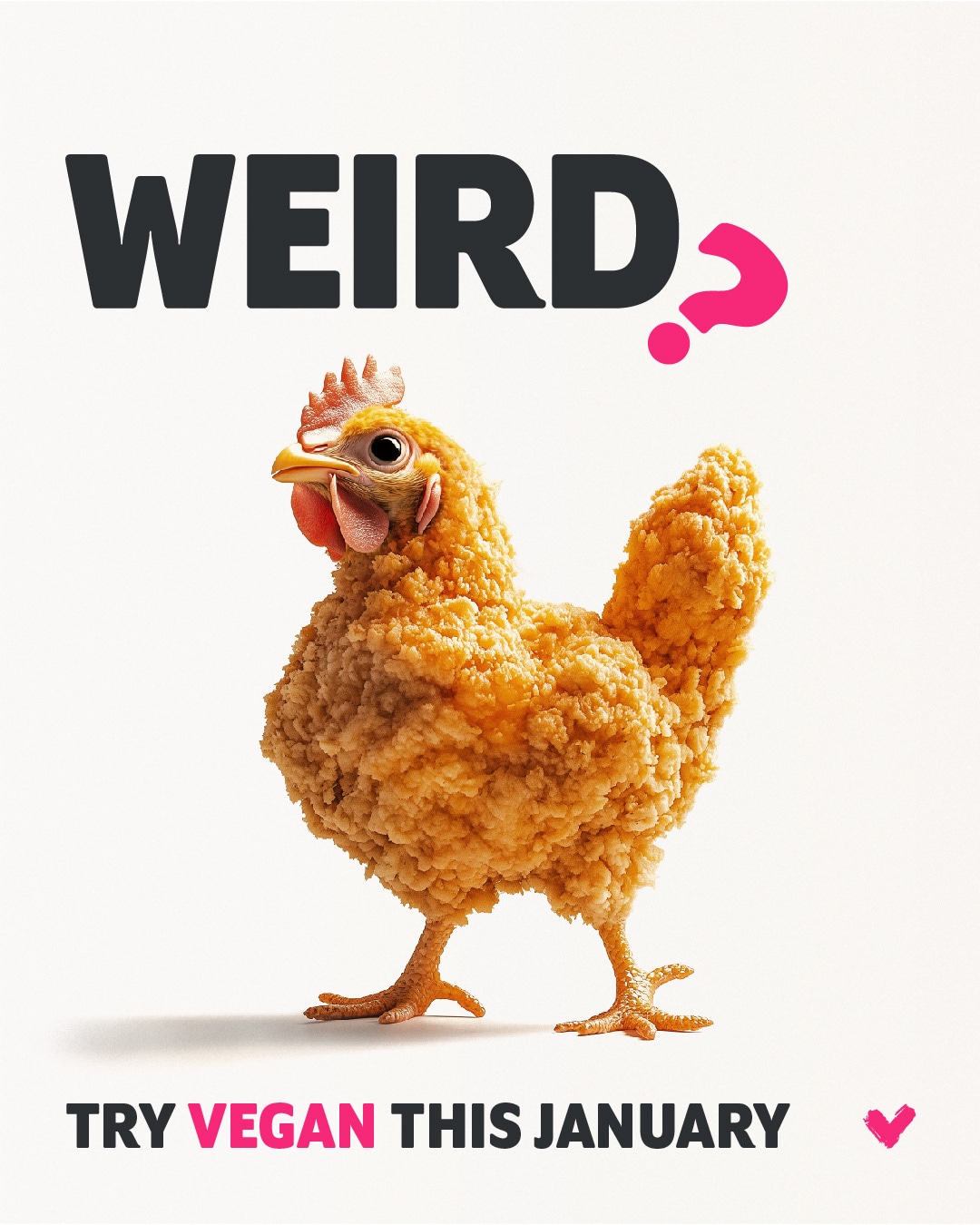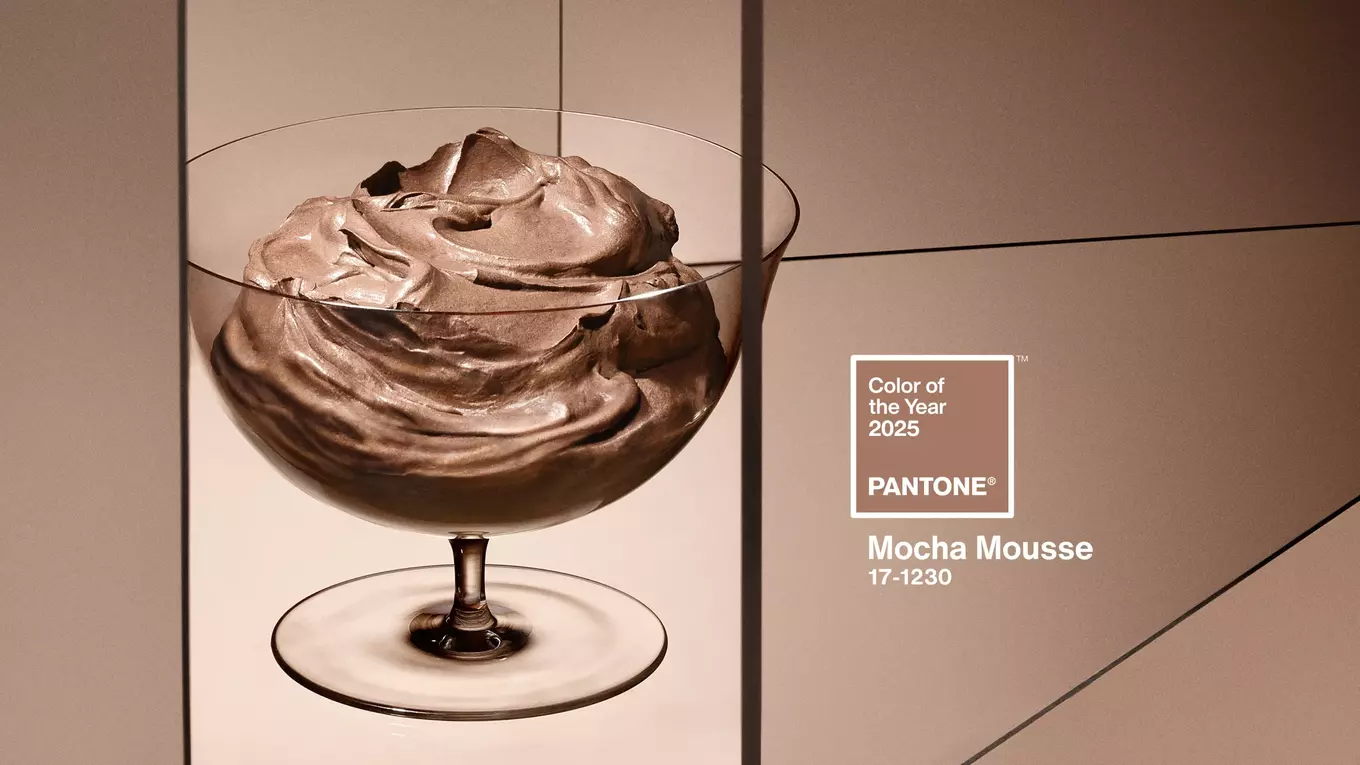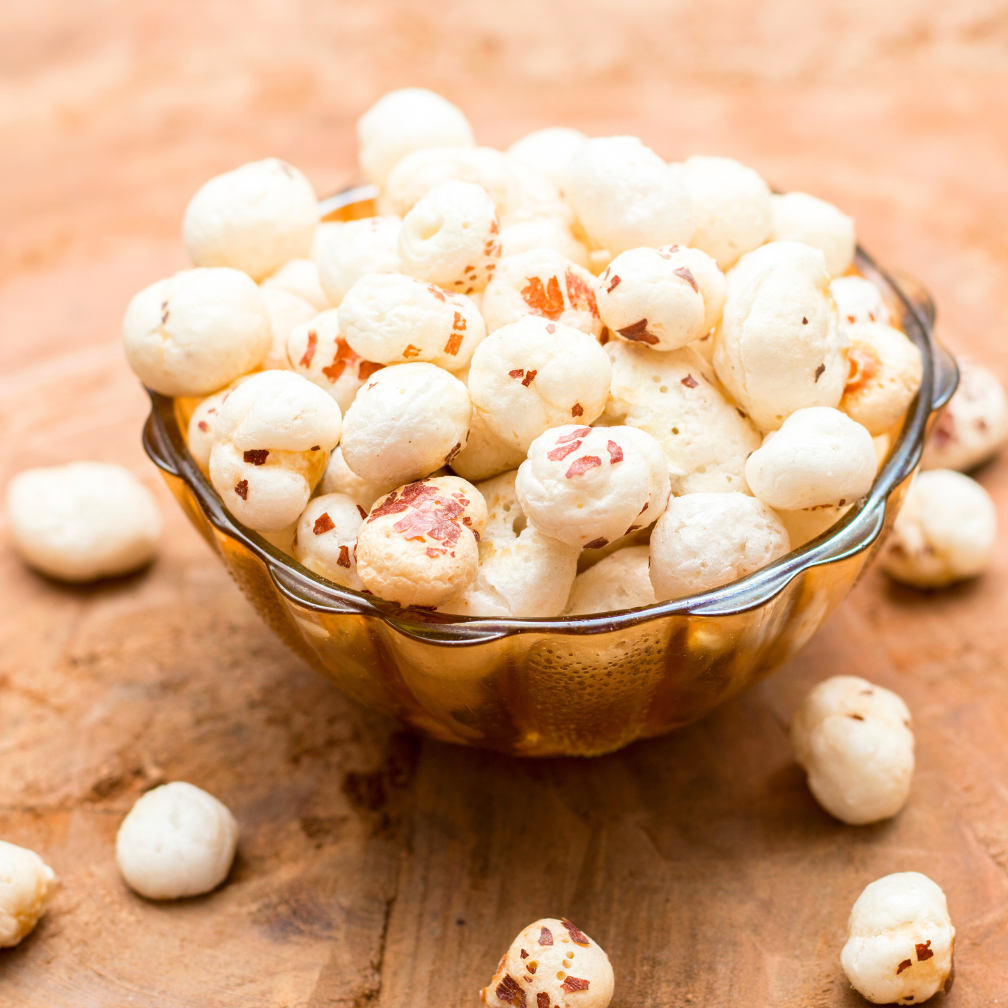More than 6,000 years ago, humans started forming civilizations for the first time. And hundreds of thousands of years before that, homo sapiens (the modern form of humans) evolved. It sounds like a heck of a long time to us, but compare it to the history of bees and it’s just a speck.
Research suggests that honeybees have been on this planet for roughly 150 million years. And over that time they have faced challenges (now more than ever), but they have also, without a doubt, demonstrated some serious resilience. In fact, now, in 2023, it’s estimated that there are literally trillions of bees, including honey bees, on Earth. Some of them are wild, and others are domesticated—which means they live in hives that are managed by humans who harvest and sell their honey.
But why do bees make honey in the first place? Is it ethical to take it from them? And if not, what can we eat instead? Let’s dive in.
Table of Contents
Why do bees make honey?
Honeybees make honey from nectar, which is a sugary liquid produced by flowers. Throughout the summer and into fall, worker bees (who are the smallest of the honeybees) fly from flower to flower sucking up the nectar through their hollow proboscis (which is basically a tongue that acts like a straw).
The worker bees persist with collecting the nectar for some time, which goes into their second “honey” stomach, as they can carry up to half their body weight in nectar before they have to go back to their hive. When they return, these bees regurgitate the nectar before it’s passed around between fellow worker bees, which helps to reduce the liquid’s water content.
Unsplash
“Once the water content drops to 18 percent, mold and bacteria can’t grow and the nectar becomes honey, which the worker bees push into wax chambers,” explains zoologist and science educator Luis Villazon for BBC Science Focus. But why do they do this? According to Villazon, quite simply, it helps to keep the hive fed and nourished through the colder months. While many bees, like bumblebees, for example, will hibernate to survive the winter, honeybees stay active.
“In spring and early summer, the bee colony uses all its honey to feed the larvae, building its workforce to a summer peak of 50,000 bees,” he notes. “These workers then spend two to three weeks madly gathering nectar to last the winter.” Villazon adds that over the course of their lifetime, it takes 12 bees to make just one single teaspoon of honey.
Why don’t vegans eat honey?
Because vegans abstain from eating animal products, and honey is an animal product, vegans don’t eat honey.
While some believe that bees can spare some honey, it’s evident from the above that making the sugary substance is a lot of hard work, and it’s a vital source of energy for the bees throughout the winter. Some beekeepers will replace the honey with sugar syrup, but, according to The Vegan Society, this doesn’t have the same nutritional value as the real deal.
“Honey is made by bees for bees,” notes the organization. “And their health can be sacrificed when it is harvested by humans. Importantly, harvesting honey does not correlate with The Vegan Society’s definition of veganism, which seeks to exclude not just cruelty, but exploitation.”
Bee-free and vegan honey products
If you enjoy the sweet taste of honey, but you’d prefer to leave the bees alone, then you can still get that sugary syrupy satisfaction from the many alternatives on the market. You can find out more about vegan honey from our guide here, but we’ve also included a few of our favorite bee-free brands below.
1 The Single Origin Food Co.
Single Origin Food Co.’s Organic Vegan Un-Honey is made with unblended coconut nectar, which means it’s just as sweet, sticky, and tasty as the real thing, only it doesn’t require any hard work from bees to make it. It’s a total win-win.
Check it out
2 Humble Honee
Ideal for topping pancakes or porridge oats, or stirring into hot water, Humble Honee’s bee-free syrup is made with a combination of cane juice, organic cane sugar, organic lemon juice, and chamomile. If you’re looking to add more to your cart, the brand also makes super-hydrating, vegan, beeswax-free lip balms in compostable packaging!
Check it out
3 Blend It Up
We don’t need bees to make our smoothies, teas, and breakfasts sweet, because we can rely on apples instead. That’s why Blend It Up uses organic apples to make this delicious bee-free honey substitute, which comes in two sizes (12 oz and 24 oz).
Check it out
4 Agave nectar
Agave nectar comes from agave plants, and, just like honey, it’s a very effective sweetener, plus it has a similar syrupy sticky consistency. It works well in most recipes that would usually call for honey, like smoothies and desserts, for example, and you can find it easily in most grocery stores.
Check it out
5 MeliBio’s Mellody
If most of the vegan alternatives just don’t do it for you, then there is a way you can basically have real honey without hurting the bees. Enter: MeliBio. The California-based startup has created Mellody Plant-Based Honey using only plants and natural ingredients. The twist is it has the exact same look, taste, and consistency as the real thing. It’s not on shelves everywhere yet, but you can find it at Eleven Madison Home, the consumer product arm of the prestigious New York restaurant Eleven Madison Park.
Check it out
For more on vegan alternatives, read:
Here at VegNews, we live and breathe the vegan lifestyle, and only recommend products we feel make our lives amazing. Occasionally, articles may include shopping links where we might earn a small commission. In no way does this effect the editorial integrity of VegNews.

